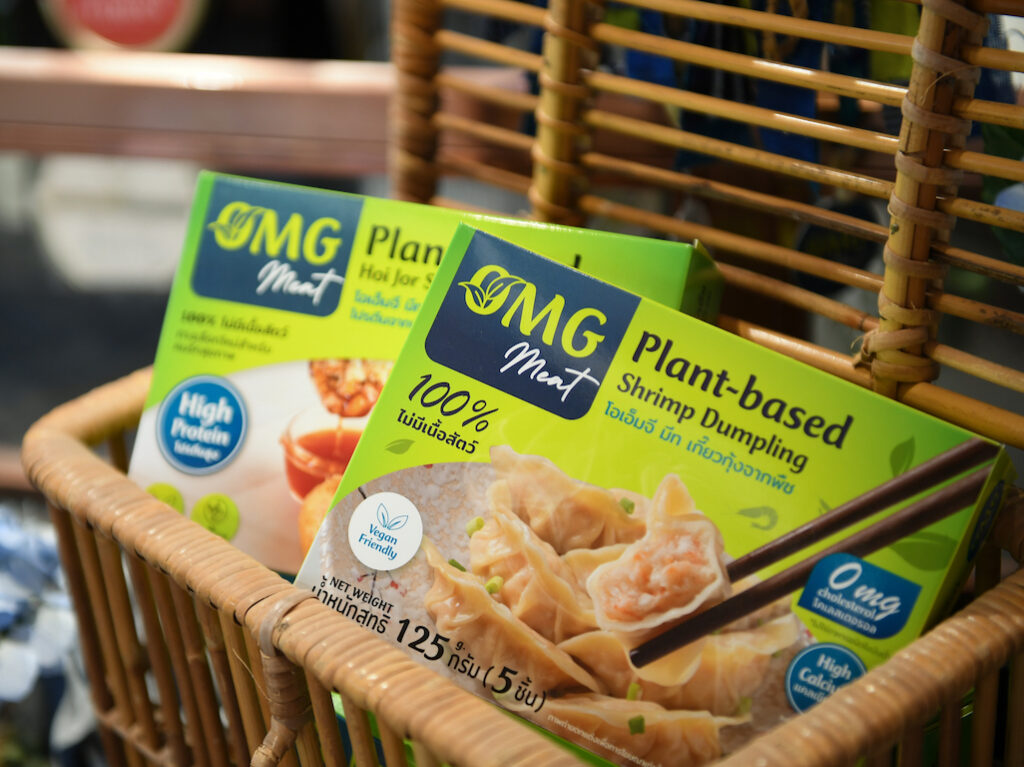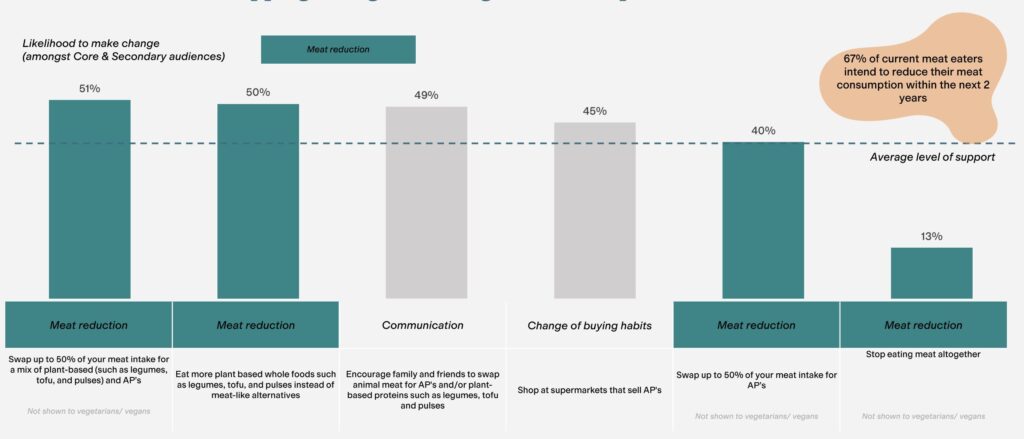‘Not A Real Noun’: Thailand Proposes Labelling Ban on Plant-Based Meat and Cheese
5 Mins Read
Thailand’s food safety regulator has published draft regulations suggesting bans on meat- and dairy-related terms for plant-based analogues.
Plant-based meat and cheese products could face crippling labelling bans in Thailand if the draft regulations by its Food and Drug Administration (FDA) are passed.
The government agency is tackling what it says is a dearth of supervision and guidelines surrounding alternative proteins with a series of proposed measures for these foods. It has established a special research team to study how novel foods are regulated overseas to inform and develop its own legislation and standards.
“At present, alternative protein products are seeing popularity amongst consumers and there are many such items on the market, but the control and supervision of the safety aspect of these in Thailand still has no clear direction,” the FDA said, according to FoodNavigator.
“We are embarking on a study of the current production and imports of alternative protein products in the country, and studying the related regulations [to apply this knowledge] in the development of regulations and standards in Thailand,” it added. “This will start with analysis of the plant-based protein sector in Thailand [before moving to] other alternative proteins such as insect-based, cultivated meat or fermentation.”
As part of its draft regulations for plant-based foods, the Thai FDA has proposed a ban on certain meat- and cheese-related terms for vegan analogues.
‘Plant-based mince’ okay, but ‘plant-based beef mince’ not

“First of all, product naming must be specified in the Thai language – additional English language labelling will be allowed, but this must be consistent with the vocabulary used in the Thai language naming,” the FDA said.
It suggested that plant-based meat producers can use names that correspond with the physical characteristics of the product. For example, ‘nuggets’, ‘tenders’, ‘mince’, ‘fillets’, ‘patties’, ‘sausages’, ‘bacon’, ‘pepperoni’, ‘chunks’, ‘roast’, etc. are all fair game – so long as they’re followed by terms that make it clear they’re plant-based (such as ‘from plants’ or ‘from soy/pea’, and so on).
These guidelines extend to certain alt-dairy products too. This means on-pack labels like ‘cheese analogue’, ‘almond milk’, ‘soybean nuggets’ or ‘burgers made from almonds’ would all be legal.
“However, words that will cause consumers confusion or to misunderstand the product to be made from meat will not be allowed on the labels,” the agency added. This means terms like ‘meat’ or ‘meat product’, those specifying the type of animal (such as ‘beef’, ‘pork’ or ‘chicken’), and other descriptors like ‘Angus’, Wagyu’ and even ‘clean meat’ would be prohibited.
Essentially, ‘plant-based nuggets’ would be allowed, but ‘plant-based chicken nuggets’ would not.
Likewise, while terms like ‘soy milk mixed with nuts’ (if it has multiple plant sources) and ‘7-grain plant milk blend’ would be legal as well, words that “do not correspond to facts or are deemed ambiguous” would be banned.
“The term ‘dairy-free milk’ is not a real noun and cannot accurately describe plant-based milk alternatives, hence will not be allowed,” the FDA’s draft regulations read. “Manufacturers are also not allowed to use names generally understood to be unique to certain dairy products such as ‘Cheddar’ or ‘Mozzarella’, or phrases that indicate equivalence with conventional dairy products such as ‘yoghurt-style’ or ‘Cheddar-like’.
“Furthermore, any terms related to specific process names for the conventional dairy sector such as ‘whole’ or ‘skimmed’ for milk and ‘mature’ for cheese, will not be allowed.”
Thailand’s proposed regulations are outdated

The draft regulations also state that all plant-based products would need to display nutritional values of the food on labels, including energy values, micronutrients, and claims relating to ingredients that may affect consumer health directly or indirectly.
The FDA’s proposal would also prohibit companies from using images, symbols or any pictorial marks that suggest the product is of animal origin, either on the front or back of the packaging label. “Pictures that showcase the characteristics of the product will be allowed – so images of nuggets or burgers will be allowed, but not a picture of a pig or cow, even if the packaging also carries a ‘meat-free’ label,” it said.
The draft regulations entered a public consultation period that ended on June 7. It’s the latest episode in the long-running saga of restrictive regulations for plant-based meat and dairy products globally. These bans are often lobbied for by livestock interest groups, with consumer confusion a commonly cited concern.
But studies have shown this isn’t the case, with most consumers knowing the difference between plant-based and animal-derived proteins. Plant-based companies like Tofurky, Miyoko’s Creamery, Planted, Oatly and NotCo have all won legal battles over product labelling.
The tide is shifting too. Italy is reconsidering the ban it imposed on plant-based labels last year over fears of conflicts with local manufacturers. France’s top court suspended a similar ban by its government, while a court in South Africa ruled against upholding a strict labelling ban on plant-based food. All these examples took place this year.

So Thailand’s proposed regulations seem ill-timed, and outdated. In actuality, its FDA should be paving the way for novel foods to thrive in the market, considering that two-thirds of Thai consumers plan to stop eating meat in the next two years, and only 9% say they wouldn’t consume alternative proteins in that period, according to a 1,500-person survey by Madre Brava.
In fact, 40% of consumers in Thailand are willing to swap half their meat intake with alternative proteins, and 70% support a reduced tax on the latter. “If the government has a policy to seriously support the production of plant-based protein and alternative protein, both for domestic consumption and export, it would be able to correspond with the direction of both the domestic and export markets,” said Jacques-Chai Chomthongdi, Southeast Asia director at Madre Brava.



